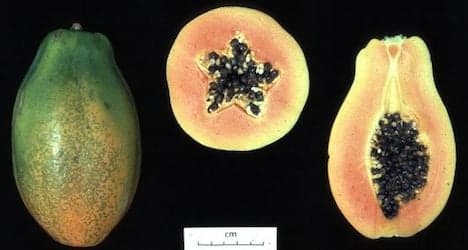Austria close to ban of GMO products

Austria's struggle for a national ban on GMO (genetically modified organisms) appears to have paid off, with European ministers supporting the "opt-out" option.
On Thursday evening, the EU environmental ministers are expected to vote almost unanimously for national opt outs for GMO products.
This has been an issue since 2010. Originally, only Austria and the Netherlands wanted to have the option of opting out of GMO products. Now, it appears that most of the ministers at the council meeting on Thursday - Austria is represented by Environment Minister Andrae Rupprechter - will vote in favour. Only Belgium and Luxembourg are expected to abstain.
The new regulation is planned as a two-step model. If - for example - the US gene-technology giant Monsanto requested permission to export a GMO product to Austria, Austria could say no. If Monsanto agreed, then the issue was over.
If it disagreed, however, Austria could approach the EU Commission with arguments as to why it did not want the product. The reasons for opting out in the second step were clearly defined - regional planning, land use, social-economic consequences or agrarian-political goals. If the regulation is passed, then all 28 EU member states will be able to opt out.
Comments
See Also
On Thursday evening, the EU environmental ministers are expected to vote almost unanimously for national opt outs for GMO products.
This has been an issue since 2010. Originally, only Austria and the Netherlands wanted to have the option of opting out of GMO products. Now, it appears that most of the ministers at the council meeting on Thursday - Austria is represented by Environment Minister Andrae Rupprechter - will vote in favour. Only Belgium and Luxembourg are expected to abstain.
The new regulation is planned as a two-step model. If - for example - the US gene-technology giant Monsanto requested permission to export a GMO product to Austria, Austria could say no. If Monsanto agreed, then the issue was over.
If it disagreed, however, Austria could approach the EU Commission with arguments as to why it did not want the product. The reasons for opting out in the second step were clearly defined - regional planning, land use, social-economic consequences or agrarian-political goals. If the regulation is passed, then all 28 EU member states will be able to opt out.
Join the conversation in our comments section below. Share your own views and experience and if you have a question or suggestion for our journalists then email us at [email protected].
Please keep comments civil, constructive and on topic – and make sure to read our terms of use before getting involved.
Please log in here to leave a comment.